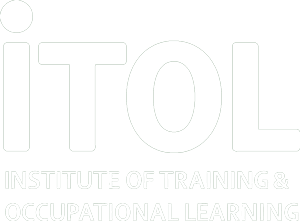iTOL Questions is a series of mini-blog posts that aim to answer common L&D related questions and provide help and support for L&D professionals.
The Issue:
Imagine that you have been in your company for a while now, you are well established and you understand every one of the staff and their learning needs. You have management on side, you have actionable data and you know all of the issues that you need to tackle.
You are now in a position to create a world-class training plan.
You are certain that this plan will generate a good return on investment and you are ready to prove it. But as we have outlined in previous posts, getting the employees to go through a training session can be a difficult task. If you are good at your job then you will have already built relationships with managers and staff to the point that they appreciate the value of what you do. But never forget the issues of both budgeting and time management. Managers want their staff to be productive, which is something that you can almost certainly help with, but they very rarely want them to take time out of work to develop their skills.
So how do you make your training plan attractive to both managerial staff and employees?
It is time to get your marketing department involved, the executives that work for your firm know how to promote and they know how to sell, so make good use of them while you can. You want your target audience to take action, so let’s think of this in marketing terms.
Target audience segmentation; are you targeting managers or employees? Are you targeting one particular department or job role? These factors are important in developing your strategy as you need to tailor your internal communications to fit the audience. If you send a generic statement out to all staff expect little return, spray and pray marketing is long dead and the targeting approach is what truly works.
Define your USP; every product or service has a unique selling proposition, find it because this is what will fill your course. You need to express the explicit benefits of your training to staff and managers, but don’t forget to target it- managers will want to hear about productivity and ROI and staff will want an opportunity to develop their career and grow.
Measure the results of your marketing efforts, like in L&D measurement is key to marketing. The more you measure the more you can adapt your efforts to achieve results. Make use of insights and analytics as these will be valuable tools in determining how you will target your audience and adapt your approach.
Marketing requires skills in communication, analysis and problem solving, which makes them exceptionally valuable skills to have in the L&D profession Not only will they benefit you in making your training courses appear more attractive but they are highly transferable into the world of Learning and Development.



